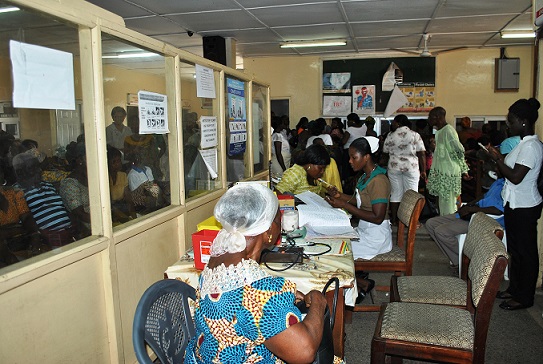The Ministry of Health together with the National Health Insurance Authority (NHIA) and other health sector stakeholders have ended a two-day workshop on costing of health services in Accra.
Speaking at the program, Chief Executive of the NHIA, Sylvester Mensah underscored the importance of costing to the health service delivery system of the country.
According to him, “an effective costing regime in the country would be useful for the sustainability of the NHIS. Not only will it help make decisions based on evidence, but it will also help to point to areas of inefficiency so that action can be taken to address them. It is on this note that the NHIA has strategically partnered with the Ministry to organise this event.”
The issue of a lack of an efficient costing system within the Ghana health set-up has been a challenge that industry players say hampers better decision making about allocating limited resources for health.
Mr Mensah acknowledged that “the Ministry of Health needs accurate cost data to develop and advocate for health sector budgets and to make investment decisions. The NHIA needs cost data to develop and negotiate payment rates for health services delivered through the National Health Insurance Scheme whereas, health care providers need accurate cost data so they can better manage their resources to deliver high-quality services most efficiently.”
The absence of a commonly accepted health services cost data has created many challenges, including tensions between health care providers and the NHIA over tariffs and payment rates that are not perceived by providers as reflecting their service delivery costs.
But Mr Mensah said it was worthy to note that “a healthcare provider’s costs are not what the provider says they are or wishes them to be.”
The NHIA boss therefore hoped the process results in a transparent mechanism for costing of health services, and develops a procedure for regular analysis and cost data collection, and above all a framework for strategic purchasing of services that is underpinned by the well thought out efforts of all involved to gain efficiencies on cost drivers.
Mr Mensah hoped that the ongoing process to develop a system that helps Ghana cost its health services will be an opportunity to build a home-grown solution to the challenges of healthcare costing that often breeds tension between the health purchaser and service providers.
The workshop was a follow-up on a collective decision at the Inter Agency Leadership Meeting held at Sogakope earlier this year.
The health costing program which is being supported by the USAID and the Joint Learning Network for Universal Health Coverage is expected to result in a more effective, responsive payment system that reflects the realities of Ghana’s health sector and economy.
Source: NHIA


